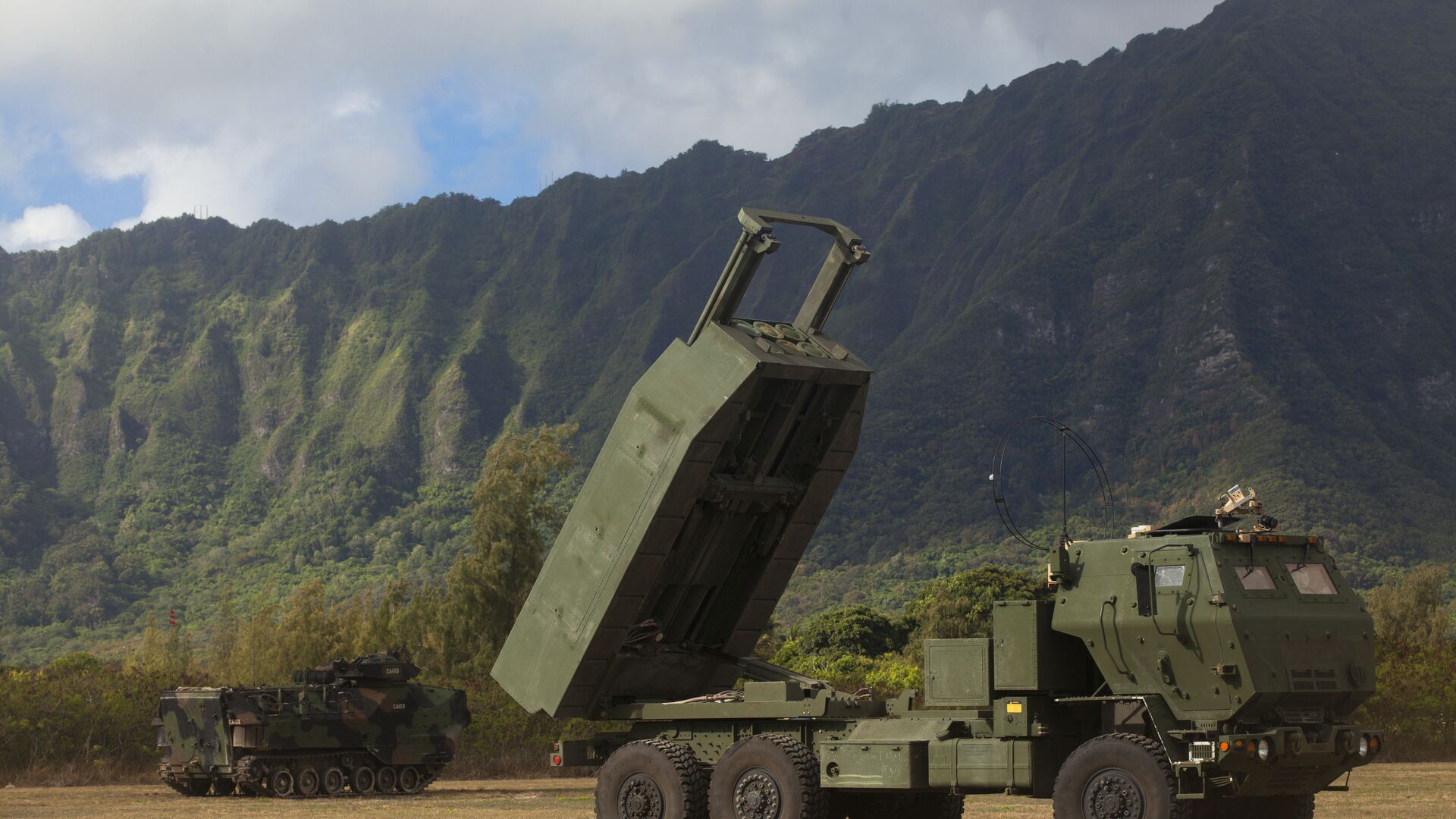Why US & Europe's Support for Ukraine May End Sooner Than Imagined, Despite Bellicose Rhetoric
15:11 GMT 11.07.2022 (Updated: 17:14 GMT 12.04.2023)

CC0 / /
Subscribe
Washington announced a fifteenth military package for Ukraine on July 8. The new $400 million bundle includes four additional High Mobility Rocket Systems (HIMARS), bringing the total to 12. However, officials have warned that US and European weapon stocks will run low at some point.
"It's impossible to continue to provide Ukraine with a non-stop supply of weapons," explained Alexander Clackson, founder of Global Political Insight, a UK-based think tank.
"First of all, it obviously takes time to manufacture them. Secondly, it must be noted that Europe actually doesn't have a big supply of weapons because Europe relies quite a lot on the United States for its security. So, in many ways, Europe is unable to support Ukraine with weapons for a very long period of time. Now, the United States is able to do that. But again, that obviously costs a lot of money."
Following US President Joe Biden's announcement of a new military package for Kiev, The New York Times suggested that at some point the flow of weapons to the Ukrainian leadership would slow down. "While the United States has authorized $54 billion in military and other assistance, no one expects another $54 billion check when that runs out," the newspaper remarked, citing US officials.
The Biden administration is persuading its NATO allies to step up weapon supplies to Kiev. At the same time, US officials are encouraging their partners to provide Kiev with "leftover stores of Soviet-made weapons". The latter is an item on Biden’s agenda for his Middle East trip next week, according to the NYT.
Meanwhile, EU Home Affairs Commissioner Ylva Johansson raised the alarm over ongoing arms trafficking from Ukraine, warning that weapons could end up in the hands of criminal gangs in Europe. Earlier, US officials acknowledged that they had little if any capability to trace NATO arms in Ukraine.
Yet another question is whether western arms "will in any way facilitate Ukraine's situation on the ground," according to Clackson.
"Many experts, including myself, believe that regardless of how many weapons Ukraine receives, they will struggle to make any gains on the ground simply because Russia's military is far too powerful compared to the Ukrainian," he said.
According to the scholar, what the ongoing flow of arms to Ukraine does is prolong the conflict, increase the number of casualties and deteriorate the global economic situation on the ground around the world, Clackson highlighted.
West Growing Weary of Ukraine Conflict
Die Welt has reported that the US and its allies are holding private talks with Kiev over the timeframe to end the conflict, with both the US and Europe reportedly in favor of ending the standoff sooner. In the beginning of June, CNN broke that US officials had been meeting regularly with their British and EU counterparts in recent weeks to discuss a potential framework for ceasefire and peace settlement without Kiev's direct participation.
"I think there is an understanding among the European and American government officials that essentially time is on Russia's hands," Clackson said. "What I mean by that is that Russia will be able to last longer in the conflict than Europe and the United States. There are several reasons for that. One, obviously, is the geographical proximity. Secondly, as I mentioned previously, there is an increasing number of people who are asking the question as to whether it makes sense for Europe and the United States to spend billions of dollars on the conflict in Ukraine when the economic crisis in Europe and the US is also increasing."
Eurozone annual inflation is projected to reach 8.6% in June, up from 8.1% in May according to Eurostat, the statistical office of the European Union. For its part, the US Federal Reserve is bracing for another high inflation figure. According to Bloomberg, the closely watched consumer price index – a popular gauge for inflation – likely rose nearly 9% in June, up from 8.6% in May. The standards of living in the US, the UK and the EU have been plummeting due to skyrocketing food and energy prices and central banks' borrowing rate hikes.
"The economic cost of supporting Ukraine is increasing every month," the scholar noted. "So as time goes on, we may see more and more people amongst the general public encouraging and pushing the politicians in the UK and Europe as well as in the United States to make some kind of a deal with Russia and Ukraine in order to end the conflict."
War vs Peace: Division Growing Within Western Establishment
There is an obvious controversy between the reported attempts by US and European leaders to settle the conflict and reduce the continuous effort to arm Ukraine, according to Dan Kovalik, adjunct professor of law at the University of Pittsburgh and author of the book ‘No More War: How the West Violates International Law by Using 'Humanitarian' Intervention to Advance Economic and Strategic Interests.’
"I think there are divisions within the ruling classes of the US and EU nations about how to handle the situation in Ukraine," he said. "Obviously, Ukraine is losing this war very badly, and the western economies are being devastated by the sanctions being imposed upon Russia. So, there are more rational western leaders who want this crisis to end and who are willing to negotiate a swift cessation of hostilities. However, there are also powerful forces who are happy to let this war continue as long as possible to try to cripple Russia."
As of yet, proponents of Ukraine's militarization have continued to this point to keep dumping weapons into Ukraine, according to the author. Still, it is also clear that the EU is increasingly losing interest in fanning the conflict, according to him. "Governments in the EU are falling like dominoes in the face of this crisis, and the EU will certainly find ways to get out of it," Kovalik explained.
Calls for peace are also emerging within the US Democratic and Republican circles. In late May, former US Secretary of State Henry Kissinger urged world leaders to strive for a diplomatic settlement in Ukraine.
For his part, longtime Democrat and economist Jeffrey Sachs pinned the blame for the ongoing conflict in Ukraine on the US neoconservative former and present officials, calling it their latest "disaster". He noted that the West's economic sanctions "have had little adverse impact on Russia, while their 'boomerang' effect on the rest of the world has been large."
"Moreover, the US capacity to resupply Ukraine with ammunition and weaponry is seriously hamstrung by America’s limited production capacity and broken supply chains," Sachs warned in his blog on June 27, in which he called for a peace settlement in Ukraine and NATO's non-expansion eastward.
If the ruling Democratic Party does badly in the November midterms, Biden "will be pressured to change his policy on Ukraine and focus on ending the conflict in order to end the economic challenges that the US and Europe are facing at the moment," Clackson projected.



